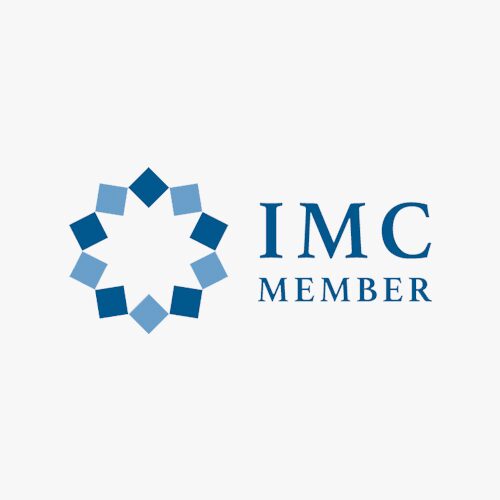Services
Due Diligence
Global Intelligence, Local Expertise.
With four decades of global experience, FACT Due Diligence are a trusted and reliable partner to organisations and governments worldwide.
We conduct enhanced due diligence on potential customers and business partners to help our clients identify and mitigate risks.
Our expertise and specialised country knowledge ensure that you have access to the information you need to make informed business decisions.
Contact us today to find out how we can assist you with your due diligence needs.
SERVICES WE OFFER
We offer a comprehensive suite of due diligence services aimed at assisting companies in recognising and mitigating risks associated with their operations. View our brochure HERE.
AML regulations require financial institutions to implement procedures to detect and prevent money laundering activities. Our AML service can help you achieve compliance by providing comprehensive risk assessments, identifying potential money laundering activities, and recommending appropriate controls.
Circumstances mandating AML monitoring in business operations:
Customer Onboarding
Before establishing a business relationship with a new customer, especially those classified as high-risk, AML due diligence is indispensable. This process involves verifying the customer’s identity, understanding the nature of their business, and assessing their risk profile.
Ongoing Monitoring
Before establishing a business relationship with a new customer, especially those classified as high-risk, AML due diligence is indispensable. This process involves verifying the customer’s identity, understanding the nature of their business, and assessing their risk profile.
Change in Customer Profile
Any significant changes in a customer’s business, such as mergers, acquisitions, or a sudden increase in transaction volume, warrant a fresh round of AML due diligence.
Regulatory Updates
The AML regulatory landscape is dynamic and evolves continually. Any changes to legislation or guidelines necessitate an updated AML due diligence process to ensure continued compliance.
Know Your Customer or KYC is a critical process used by organisations to verify the identity of their clients. Our KYC service can help you comply with these regulations by providing accurate and up-to-date information on your clients. We can verify identities and assess creditworthiness to ensure compliance with regulatory requirements.
The KYC Process: A Step-by-Step Guide:
Regulatory Updates
The AML regulatory landscape is dynamic and evolves continually. Any changes to legislation or guidelines necessitate an updated AML due diligence process to ensure continued compliance.
Customer Verification
Once the identification information has been collected, the next step is to verify this data. Verification serves to confirm that the customer is who they claim to be.
Risk Assessment
Following verification, a risk assessment is conducted. This is a crucial stage in the KYC process, as it involves assessing the potential risk that the customer may pose in terms of engaging in illegal activities such as money laundering or terrorist financing.
Ongoing Monitoring
The final stage in the KYC process involves ongoing monitoring of the customer’s transactions. This allows financial institutions to identify any unusual or suspicious activity, which might indicate potential illicit actions.
Politically Exposed Persons (PEPs) are essential for identifying individuals who may pose a higher risk due to their political exposure. Our PEP service can help you uncover and minimise these risks by conducting thorough checks on individuals and their associated entities. We can also provide ongoing monitoring to ensure compliance with regulatory requirements.
Here’s how a politically exposed person can affect a company:
Reputation and Business Relationships
Being associated with a PEP can affect a company’s reputation. Other businesses and financial institutions might be cautious about engaging in transactions or partnerships with a company dealing with PEPs due to the perceived higher risk.
Regulatory Compliance
Companies dealing with PEPs must comply with strict regulations and guidelines set forth by regulatory authorities. Failing to adhere to these regulations can result in severe penalties, fines, and legal consequences for the company.
Financial Risk
There’s a potential financial risk associated with dealing with PEPs. If the PEP is found to be involved in illicit activities or if their funds are frozen due to sanctions, the company might suffer financial losses.
Increased Scrutiny
Companies dealing with PEPs may attract increased scrutiny from regulatory bodies. Authorities might closely monitor their financial activities and transactions to ensure compliance with regulations, leading to additional administrative burdens.
Operational Challenges
Implementing the necessary compliance measures can be operationally challenging, costly and may require investment in specialised staff, technology, and training to ensure they meet regulatory requirements.
Risk profiling is essential for managing risks effectively and understanding your risk appetite. Our risk profiling service can help you identify and assess the risks associated with your business operations to develop effective risk management strategies. Our experienced team can analyse data, identify potential risks, and provide recommendations on risk management strategies and controls.
Here’s how risk profiling can help your business:
Identifying Risks
Risk profiling helps businesses identify various types of risks, such as financial, legal, operational, and reputational risks. By understanding these risks, a company can take proactive measures to mitigate them effectively.
Compliance with Regulations
Businesses operate in a complex regulatory environment. Proper due diligence ensures that a company complies with relevant laws and regulations, avoiding legal issues, fines, and reputational damage associated with non-compliance.
Enhancing Decision-Making
Thorough due diligence provides valuable insights into potential partners, clients, and investments. This information empowers businesses to make informed decisions, reducing the likelihood of entering into high-risk partnerships or ventures.
Protecting Reputational Capital
A damaged reputation can be detrimental to a business. By conducting due diligence on partners, suppliers, and clients, a company can avoid associations with entities involved in illegal or unethical activities, preserving its reputation in the market.
Preventing Financial Losses
Proper risk profiling and due diligence help identify financial red flags, such as a partner’s unstable financial situation or outstanding legal obligations. By avoiding financially risky engagements, a business can prevent substantial monetary losses.
Building Trust
Demonstrating a commitment to due diligence and risk management builds trust among stakeholders, including customers, investors, and business partners. Trust is the foundation of successful and enduring business relationships.
Mitigating Operational Disruptions
Identifying potential risks before entering into agreements can prevent operational disruptions. For example, conducting due diligence on suppliers helps ensure a stable supply chain, preventing interruptions in production or service delivery.
Effective and robust citizenship and residency programmes depend on comprehensive and accurate evaluation processes. A due diligence practice that provides effective risk management enables decision making that is informed, accurate and safe.
FACT’s Due Diligence team is proficient in over 40 languages with a worldwide presence backed by specialised country knowledge. We are entrusted by governments to uphold the standards and integrity of their programmes.
We achieve these standards by leveraging 40 years of expertise, delivering bespoke due diligence services that are innovative and problem solving in their approach and outcomes.
Our Scope of Research and Methodology
FACT’s expert research team yields detailed analysis to deliver an accurate and comprehensive picture of a subject, including broader influencing issues.
Personal
Verify and confirm all aspects of an applicant’s identity and personal life
Business
Assess the validity and integrity of an applicant’s business activities
Wealth Analysis
Analysis on an individual’s financial assets and sources of income and wealth
Criminal Record
Clear profiling on criminal activity and convictions
Security Concerns
Provide insights into any political exposure and security risks that an individual may pose
Third-party due diligence is an integral part of risk management that ensures the protection of your organisation’s reputation, assets, and sensitive information. It involves a thorough assessment of external parties, such as suppliers and vendors, to identify potential risks and mitigate them effectively.
When you need Third Party Due Diligence:
Onboarding New Vendors/Partners
Before entering into a contract with a new third party, it’s vital to conduct a thorough assessment of their financial stability, legal compliance, ethical conduct, and ESG factors.
Annual Review
Regular reviews of existing vendors are crucial to ensure they remain compliant and continue to meet your company’s standards.
Significant Changes
If there’s a significant change in a vendor’s business – such as a merger, acquisition, or notable growth – it’s time for an updated due diligence review.
Regulatory Changes
Changes in the regulatory environment may necessitate additional checks to ensure your business and its partners are in compliance.
Risk-based Approach
Depending on the inherent risk associated with the third party, more frequent and detailed checks might be required.
In association with
What sets us apart?
Sectors we cover
Get in touch
Regal House
70 London Road
Twickenham
Middlesex
TW1 3QS





